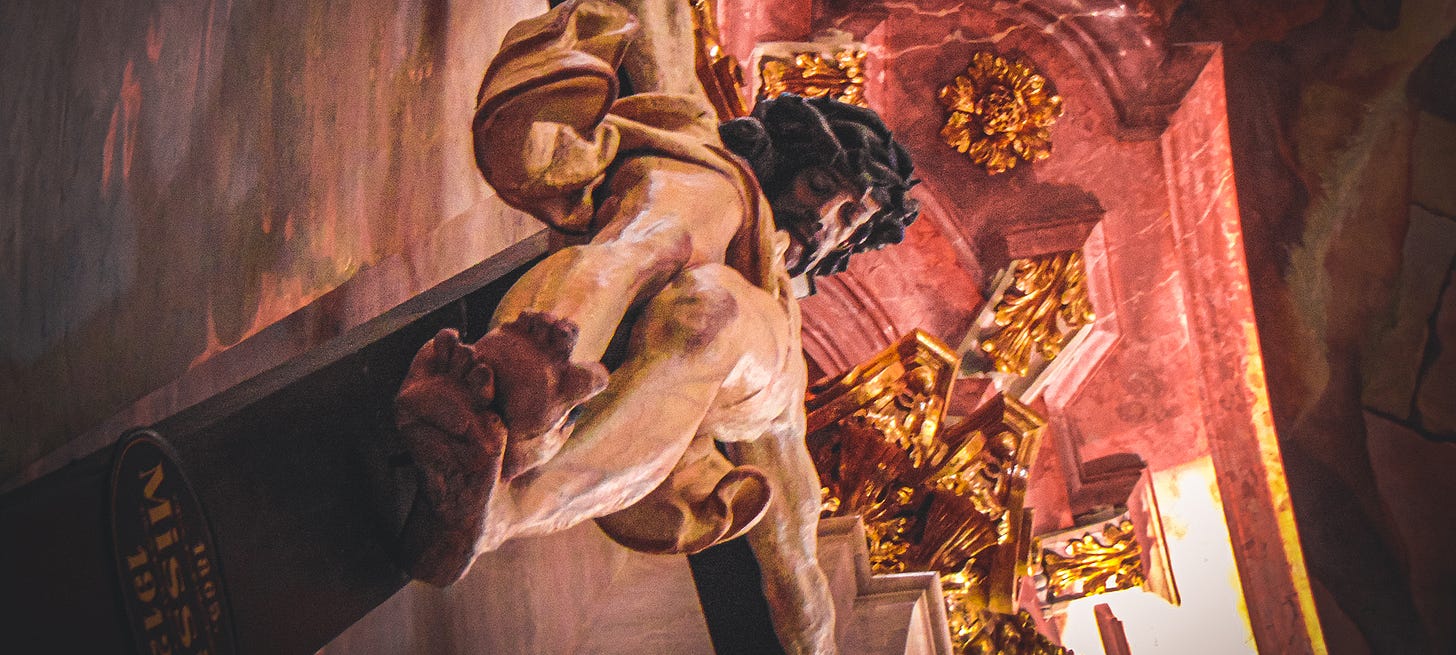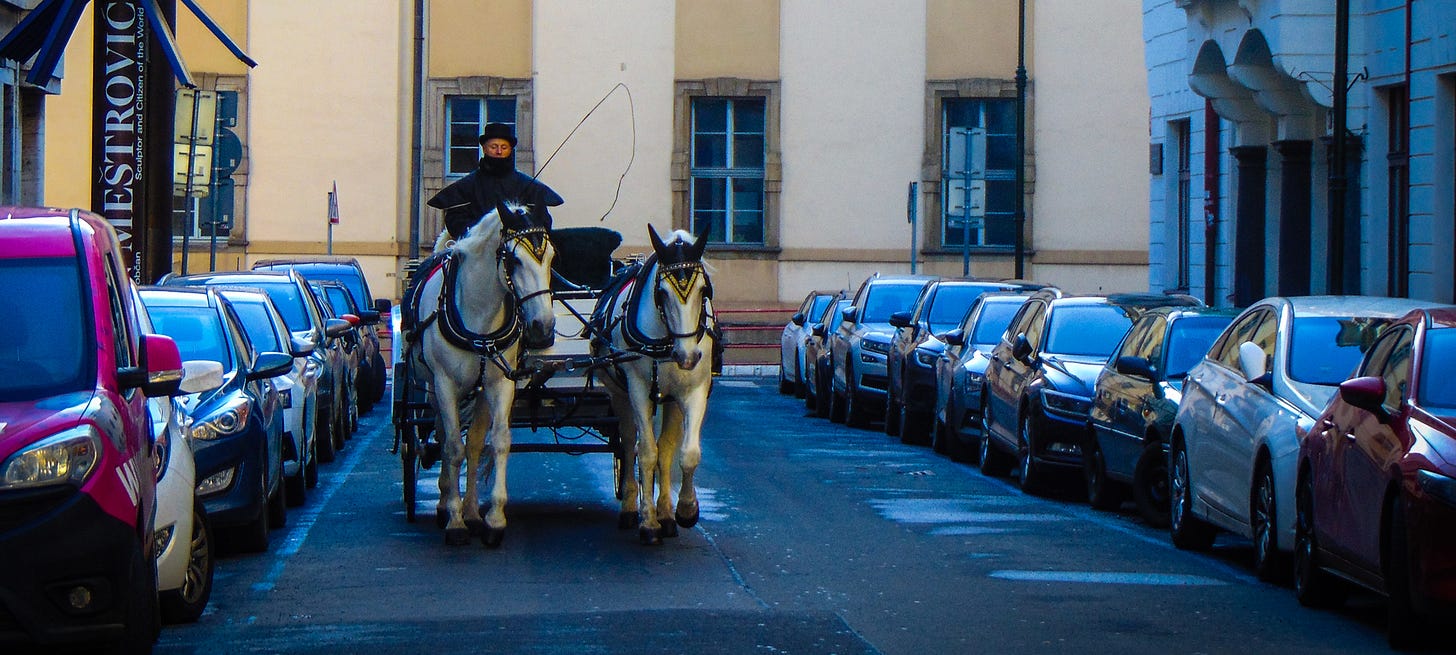i wanna be unique like you: January 2023 Essay Recommendations
A new thing because there's lots of good long-form writing and I don't know what to do after I read any of it.
My perennial commitment is to read more essays, opinion pieces, and long-form writings. To scroll Twitter and Instagram less and use more of my “free time” to read the articles that I “bookmark” on Twitter, “save” on IG, and leave open in Chrome tabs for weeks on end. It’s an easy commitment to keep and also easy not to keep. But I’ve been doing okay this month! (My phone informed me I used it 3.5 hours less last week than I did the week before. Yay for less doom-scrolling!)
The problem I encounter is what to do with all the timely, important things I read. And, trust me, there’s lots of good, challenging, long-form writing out there. I try to be conscientious about sharing stuff on Twitter because that’s where I come across many things to read. And I try to keep a log of the really good stuff. But now I’m doing this…
At the end of each month, I’ll share some stand-out pieces and talk a little about why I think they’re important with you, dear Very Public Secret Society member.
Here’s what caught my eye in January.
mirror, mirror, on the wall, who’s the greatest AI of them all?
I’m recommending The philistine war on AI art by Justin E.H. Smith. The AI art revolution is upon us, and with it comes the age-old question, we can, but should we? Also comes the new-age question: Is AI art actually art? Smith turns these questions about, pointing out that art is more than just the end product—and more than just the viewer’s opinion of that end product. It’s also about the maker and that fleeting nexus of time, place, and genius.
AI art will supervene, is already supervening, upon several different categories of human endeavour — the clever technology-dependent stunt, the joke, divination — and will continue to please us and disappoint us in just the same way that these other endeavours do. It is simply not a meaningful question to ask whether any AI output may appropriately be categorised as art. Art is artifice plus, one hopes, a hint of genius, or something close to that. Such hints can shine through, as I’ve attempted to remind you, in the most unlikely, indeed the silliest places. There is of course no reason why AI should not also be such a place.
i wanna be unique like you
The internet princess strikes again with the excellent and artfully unpolished essay, micro-individuality. From my limited exposure to Rayne Fisher-Quann, I’ve concluded she’s an unparalleled web flâneur. Her observations about culture, especially culture metastasized by the virus of the internet and all it’s bequeathed us, are particularly insightful. Writing from within the asylum, she offers a crunchy take on our obsession with presenting as unique individuals by copying everything we see around us. It all goes back to capitalism.
the unholy dreamer, the Christian dream
This is not your run-of-the-mill op-ed about MLK on MLK Day. Dr. Bethel McGrew spices things up in Of Myths and Dreams, pointing out that Martin Luther King Jr., an unparalleled figure in American history, is not the man, the myth, or the legend we make him out to be. He was a complicated, messy human being like every other individual who has risen to mythic status. (JFK, anyone?) For the most part, the public wears blinders about his legacy because “the myth 👏 must 👏 survive 👏, or else we have nothing.”
If you’ve been tracking the Society’s bent over the last few months, you’ll know this address of MLK as necessary myth spoke to me on multiple levels. McGrew also provides a take on the do we reject the art if the artist is bad? question which seems to pop up over and over again. (You can read my take on that here.)
I like this piece because it reads uncomfortably. Part of the role of mythic stories and mythic figures is that they help us make sense of the world. They help us feel safe. And the MLK story that’s told and retold has the elements of permissible chastening (for our historical sins) and comfortable hand-holding that positions us as the good guys, the inheritors of MLK’s work and legacy. His angel wings rest over us.
But the sainted myth, the story told in the stained glass windows, is only part of the story. I like stained glass, but I like to flirt with shattered stained glass more. McGrew wields the hammer that shatters that glass. We’d do well to be uncomfortable, to cut and bleed a little every now and then. (Another piece that pokes at our comfortability with the myth of MLK is Tyler Huckabee’s Before You Quote Martin Luther King Jr. which is also worth a read.)
a very clever piece
Living in England, I sometimes hear people say “he’s very clever,” meaning that someone is intelligent and quick-minded. But clever has shades of meaning, some of which aren’t always good. I wanted to read Alexander Stern’s piece, The Impotence of Being Clever, because I like to think I’m clever—sarcastic and quick-witted and above-it-all. This isn’t good, people! And that’s the case Stern makes.
He connects the obsession with being clever—often apparent in smug, witty, sarcasm-disguised-as-humor retweets and replies—with the alienation that is all too present in our society. An alienation brought about by everyone living on the internet all of the time and unlearning what it means to be sincere—and quite possibly losing the ability to be sincere. (I’m extrapolating here.)
If you feel clever, go read this essay, and you’ll probably feel a little sick. My boy Kierkegaard also features significantly.
o obstinacy!
If I could be anyone in the world based solely on the work I see from them on the internet, I’d want to be Maria Popova—reader, professional wonderer, and writer par excellence who effortlessly pulls together disparate threads to tell compelling, inspiring stories. I read Trial, Triumph, and the Art of the Possible: The Remarkable Story Behind Beethoven’s “Ode to Joy” recently, and I highly recommend it. It’s a tour de force.
Everyone knew he was deaf. Now they feared he was demented.
Great works often come out of turbulence and drama. Almost nothing worth doing is easy. Somehow, after a decade of silence, the deaf demon composer delivered a piece which “might be the truest translation of ‘joy’—this ecstatic fusion of presence and possibility.”
Happy reading!









